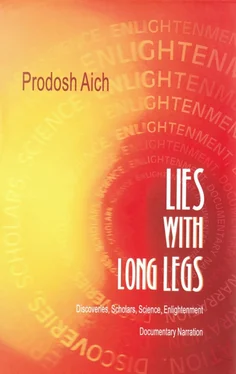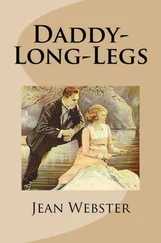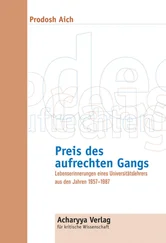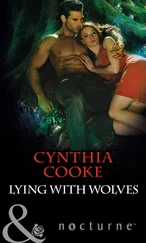The “scientists” have not convinced us. Our initial enthusiasm about the description of grievances has vanished. We are familiar with these grievances as well, and to our surprise, we know a lot more details from our own practical experiences than the “scientists” do. Why do the scholars of all colours keep themselves busy on general levels? Why are they shy of plain and straight language? And there is this wretched practice of quotations. It has not only strained our nerves, it has also made us suspicious that many scholars deal with problems, circumstances, social interdependencies about which they have not learnt from their personal encounters and experiences at all. While reading them we feel that they are rather fed with written assessments and possible experiences of scholars of past generations. We are surprised to note that those writing “scholars” were and still are more credulous than we are. They do not question their predecessors about the how and where. All they want is to make us believe that they are knowledgeable and are experts. We cannot refrain from concluding that “social scientists” have always felt comfortable with their ability of blind trust in the printed words. Their motto, if the printed word did not carry truth, it wouldn’t have been printed at all.
We cannot get rid of the impression either that many publications in “social sciences” are not based on precise observations and on their description, but on prior publications on the topic. Not all of them, but a lot of them. And how much is “a lot” ? How can we estimate this? We have not come across any critical reviews of citations yet. We are confronted with quotations, only as parts of former publications supporting the “writing scholar”. Without any critical distance from the sources. Is it necessary? What would be the price? Does it not require time? Isn’t time also money? If someone like us should have doubts, why not let him check? Is there not enough “bibliographic information”? Is the “bibliography” not up to the mark? Well, we have doubts. The “bibliography” only indicates books which have eventually been consulted. A complete bibliography on the topic is never supplied! And why are certain publications excluded? How can we know? Would it be too much to ask “modern scholars” to give us exactly all this „information“? And why don’t they check the quoted texts? Is it not possible that mistakes be made while copying? Is it not possible for the quoted excerpt to be out of proper context? And, after all, anyone who approaches celebrated scholars with so much scepticism has to learn to believe. The alternative to believing is time consuming and tiring: Go to the library, search the catalogue, borrow the book, find the quotation, careful proof reading, word by word. The book might not be available; it might have to be borrowed from some other library far away.
So, in practice, we don’t know precisely, how systematically the selection of books is made. The only systematic thing in the selection is that recent publications are mostly included. Obviously in the conviction, or rather in the belief that the latest publication must have consolidated the relevant prior publications.
After this excursion into the working methods of the so-called scientists we should now turn to their books. The books are supposed to have been written for readers like us. We have not understood everything in them. But we have got the essential message. We should let them make us believe that it is more convenient to leave the thinking to “scholars” and the doing to learned “professionals”. This is confusing. If books, even the intelligent ones, are written for us, shouldn’t we then be able to understand them?. And if we understood them, why aren’t we as good as the writing elite in that field? Why should we leave the thinking to them, if we can comprehend what they write? Do they keep something back? Are there errors in our reasoning?
Then the language of many critical scholars has also strained us immensely. It is complicated, encoded, uncommon, and foreign. It is shallow with a narrow range of topics. Anyway, the message has reached us, though it has missed its goal. It has failed to make us believe that without their aid we won’t ever comprehend the complicated circumstantial contexts of a “modern liberal democratic society”. No, not because they do not have answers to our questions. No! They have simply failed to explain, how rich people become rich, how already wealthy people become wealthier and the needy majority increasingly poor. And there is so much of secrecy. On one hand almost all written documents are kept beyond our reach, documents which display the activities of our “Deputies” (Representatives) in the parliament and in the government, and on the other hand the flood of information and (hi)stories whose authenticity is doubtful. So, we have to ask questions. Always new questions. The following ones for example.
How does the elite become an elite? Are they elite by birth, or do they become elite by training? If by training, how do they get access to the centres of training? By social heritage or by acquired intelligence? How do they find topics for their diploma and doctoral thesis? How are candidates being selected for a doctoral thesis? What is the cost of a thesis? Paid by whom? Who patronises the elite? How much do they earn? Who employs them? What is the main activity of the elite—to advise their employers or enlighten the public? Are they allowed to utter their opinion in public? And even if they were permitted to do so, could they express anything publicly, which would contradict the interests of their “masters”? And are there means to educate and to enlighten the “common people”? How does it happen? Through „media“? Who are the owners of „media“? Do these owners also have specific and particular interests? Do the „media“ publish everything? Are they able and willing to do that? Do they select items? According to which criteria? And so on, and so forth.
There seem to be endless questions. In practice, we have detected that there are many different kinds of questions. In theory we all know about that. And in practice we have learnt to identify questions that lead to knowledge and questions that distract from knowledge. An eye–opening practice indeed. We have learnt gradually to put precise questions. We have frequently consulted reference books, whenever the stock of our own memory was exhausted. Later we have started to wonder, how are reference books actually compiled? Who determines the catchwords? Are there also omissions? Why? According to which criteria? Does publisher want to earn money only? Does the publisher also have his own ideas about morality and values? Does he combine these with money making? How does he know that he has listed all important catchwords? How can he be sure? Whom does he call for consultations? Researchers ? Scientists ? Do they also have their own ideas about moral? Would there be reference books without scientists , without scholars ? Are we back to the elite?
For two reasons we have spent time on “reference sources”. Whenever we do not know something, we turn to references, get an answer and feel “informed”. We accept it. We are convinced. We do not have any alternatives. Very seldom do we ask: who has written down all that? From where and how do the authors of the texts obtain the information? Have their writings also been edited, revised, patched, shortened? Why is there more than one “source of reference”?
The second reason is even more serious. Since when had there been demands for references? How did it develop? Do “reference sources” also exclude some keywords? Isn’t it that all media“ always have limited space for publication? Isn’t there that all important cost–benefit–ratio to consider? Are there other reasons also to exclude keywords and thereby also fields of knowledge? Was the first publisher of a “reference” conscious of the fact that he was also standardising the answers to key questions? Thus ultimately standardising them too? The exemplary battle against the “references” in the “internet” is quite tough. The publishers of the printed “references” accuse the “internet” publishers that they take short cuts and shorten explanations in order to compete. We are led to believe that these criticising publishers are more concerned about our knowledge than about their profits. Have they not fought exactly in the same manner to win the market? The “war” reports should not divert our minds from the consequences of standardisation by “reference sources”. Standardisation? Standardisation or exclusion of fields of knowledge?
Читать дальше












